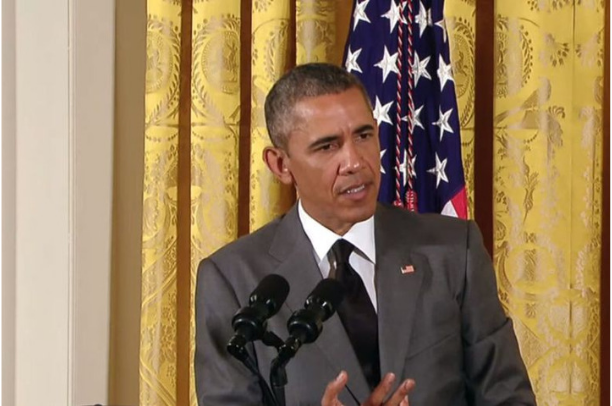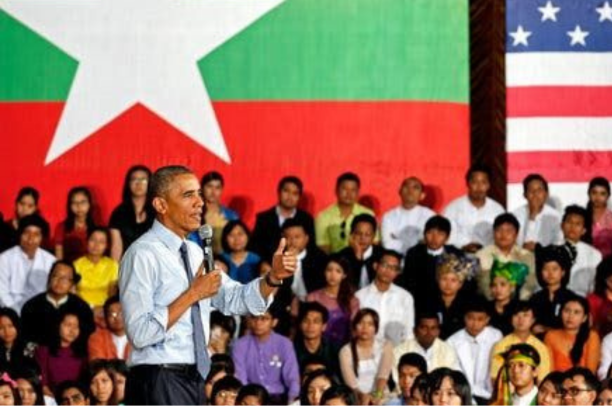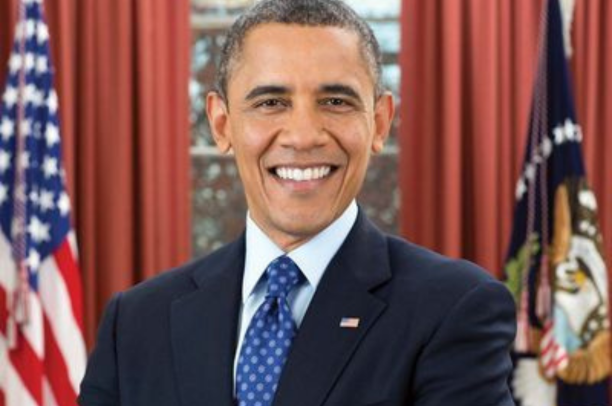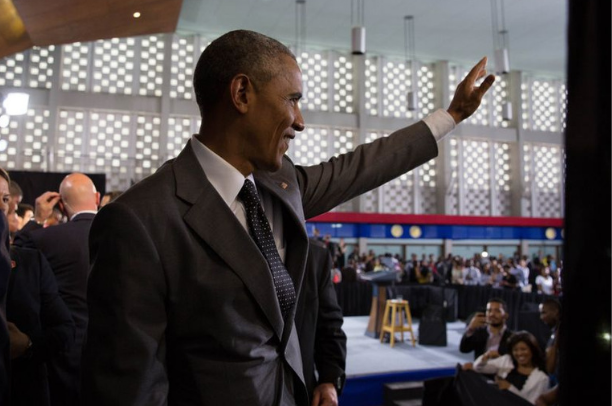How the African Diaspora is Pioneering Transpersonal Diplomatic Leadership

Today’s world increasingly is defined by interconnectedness meaning leadership is taking on a new form—one that transcends traditional models of power and authority. For the African diaspora, leadership is not just about representation; it’s about creating a legacy of impact that aligns with the values of community, collaboration, and ethical responsibility.
Want to learn more about storytelling? Start by downloading the first chapter of The Storytelling Mastery.
Recently, we published an article “Education and Collaboration: How USOAD and El Roi University are Reshaping Afro-Centered Learning”, talking about the partnership between the University of the State of the African Diaspora (USOAD) and El Roi University (ERU). This is a continuation of that conversation.
During our conversation with Professor Oluwafemi Esan, he revealed how the collaboration with USOAD seeks to reshape how we understand leadership by introducing the Level 7 Diploma in Transpersonal Diplomatic Leadership Development.
No one can deny the pressing need for quality leadership in Africa today. That’s also one of the main reasons why our educational platform, AClasses Academy, was created – to provide top-tier education in business, self-mastery, and leadership.
This isn’t just about learning; it’s a movement towards a future where African leaders excel on the global stage, armed with the right skills, a people-oriented mindset, and a strong sense of purpose.
The Future of Afro-Centered Leadership
Imagine this: African leaders, diplomats, and change-makers leading the charge on the global stage—not through dominance or self-interest but through emotional intelligence, vision, and a commitment to collaboration.
This is the future that Professor Oluwafemi Esan of El-Roi London University envisions, one where African diplomats can move beyond the constraints of ego and politics to create lasting change.
Through the Level 7 Diploma in Transpersonal Diplomatic Leadership, diplomats from the State of the African Diaspora will gain the tools and knowledge to lead with empathy, integrity, and purpose.
According to Rebecca Knight in her article, 8 Essential Qualities of Successful Leaders, “Becoming a great leader is a journey of continuous learning and growth.” She added that leadership skills are a process that thrives on embracing challenges, seeking feedback, fostering connections, and cultivating understanding.
In this article, Harvard Business School professor, Linda Hill, a renowned leadership expert, outlines the eight most crucial leadership qualities. According to Linda, star leaders aren’t born with extraordinary abilities. Instead, they place themselves in challenging situations that compel them to learn, adapt, and grow.
See also From Competing to Leading: How Purposeful Storytelling Fuels Market Leadership
This crucible of experiences, much like what is the true characteristic of the African diaspora, cultivates the tenacity and resilience needed to inspire and lead others effectively.
It’s important to point out also that transpersonal leadership goes beyond the individual, focusing on a holistic approach to leadership that prioritizes self-awareness, emotional intelligence, and ethical decision-making.
These are crucial skills for the African diaspora, which often operates in environments marked by cultural complexity and historical legacies that continue to influence modern diplomacy.
As African nations and communities within the diaspora push for more representation and influence in global affairs, it becomes increasingly important to cultivate leaders who can navigate this complexity with grace, vision, and empathy.
This is where El-Roi’s collaboration with SOAD shines brightest. By offering this pioneering leadership program, they are building a bridge between Africa and its global diaspora, fostering a new generation of leaders equipped to transcend boundaries and unite communities.
And it’s no small task. Consider that the African diaspora is one of the largest in the world, with over 200 million people of African descent living outside of Africa. This immense network represents not just a political force but also an economic powerhouse waiting to be fully explored.
The Role of the State of the African Diaspora (SOAD)
The State of the African Diaspora (SOAD) is a critical player in this collaborative effort. Established to unite and empower Africans worldwide, SOAD serves as a platform for global African engagement and leadership.
See also Five Lessons from Ursula Burns: A Blueprint for Modern Business Leadership
With over 200 million people identifying as part of the African diaspora, the mission of SOAD is to:
- Bridge the gaps between African nations and their diaspora,
- Fostering cultural exchange,
- Business partnerships,
- And now, transpersonal diplomatic leadership.
But why is this important now? The answer lies in the challenges African nations face on the world stage. Whether it’s navigating complex trade negotiations, addressing global health crises, or engaging in climate change diplomacy, Africa needs leaders who can think beyond national interests and lead with a global vision.
Leaders who are grounded not just in political strategy but in emotional intelligence and ethical leadership. This is where the Level 7 Diploma in Transpersonal Diplomatic Leadership comes in, offering diplomats a unique opportunity to refine their leadership skills while staying true to the values of the African diaspora.
By focusing on transpersonal leadership, this program is designed to help diplomats transcend ego-driven leadership styles and embrace a more holistic approach.
In an interview with Obehi Ewanfoh, Professor Esan explained the vision behind the program: “We’re not just training diplomats to negotiate or resolve conflicts; we’re teaching them how to lead from the heart.
We want them to understand that leadership is about service, service to their communities, their countries, and the world.”
You might also like Transforming Communities: The Power of Purpose-Driven Ventures
This is a radical shift from traditional leadership training programs, which often focus solely on political strategy and negotiation tactics.
A Course for the Future
The Level 7 Diploma in Transpersonal Diplomatic Leadership Development is more than just a certificate—it’s a transformative journey. Delivered through an online format that accommodates the demanding schedules of diplomats, the course is structured into five modules, each offering critical insights into the principles of transpersonal leadership:
- Module 1: Transpersonal Leadership Philosophy – This module introduces the core tenets of transpersonal leadership, emphasizing the importance of leading beyond the ego to foster ethical and visionary leadership.
- Module 2: Psychology of Self-Leadership Development – Through this module, diplomats will learn how personal growth and identity formation influence their ability to lead effectively.
- Module 3: Leading Beyond Ego – In this section, participants explore how to transcend self-centered leadership and cultivate an authentic, purpose-driven approach that inspires others.
- Module 4: Visionary Leadership in Diplomacy – Focused on strategic foresight, this module teaches diplomats how to cultivate a long-term vision that aligns with global collaboration and diplomacy.
- Module 5: Transformational Leadership in Diplomacy – This final module provides the tools diplomats need to drive change and innovation through resilience, adaptability, and proactive problem-solving.
What makes this course stand out is its commitment to ethical leadership. In a time when corruption, political instability, and self-serving leadership plague many nations, this diploma emphasizes the importance of maintaining ethical integrity.
For diplomats from the State of the African Diaspora, this is particularly significant. They represent not just their own nations but the collective identity of Africa on the global stage. It is their responsibility to uphold the values of honesty, empathy, and collaboration.
Collaboration Within the African Diaspora: A Global Business Network
The partnership between El-Roi and SOAD highlights a broader theme that resonates deeply within the African diaspora—collaboration. As Africa’s economic and political influence grows, so too does the need for its diaspora to engage in meaningful partnerships.
According to Paul Tiyambe Zeleza’s 2022 analysis, “Africa and Its Diasporas: From Pan-Africanism to Developmentalism to Transnationalism,” remittances are essential for low- and middle-income countries. In 2019, they soared to a record high of $548 billion, surpassing foreign direct investment (FDI) flows of $534 billion and overseas development assistance (ODA) of $166 billion.
Zeleza, a distinguished Malawian historian and North Star Distinguished Professor at Case Western Reserve University, highlighted that in 2020, Sub-Saharan Africa received $44 billion in remittances, while North Africa and the Middle East received $55 billion, marking an 8.8% and 8.5% decrease from 2019, respectively.
In 2019, African countries were projected to receive $84.3 billion in remittances, with Egypt leading at $26.4 billion (8.8% of GDP), followed by Nigeria at $25.4 billion (5.7% of GDP), Morocco at $7.1 billion (5.8% of GDP), Ghana at $3.7 billion (5.5% of GDP), Kenya at $2.9 billion (2.9% of GDP), Senegal at $2.5 billion (9.9% of GDP), and Tunisia at $1.9 billion (5.3% of GDP).
See also Empowering Communities: The Role of African Diaspora Women in Small Business
These figures underscore the critical role of remittances in supporting economic stability and growth in African nations.
Now, beyond financial contributions, the diaspora has the potential to drive business innovation, cultural exchange, and leadership development. Programs like the Level 7 Diploma in Transpersonal Diplomatic Leadership Development are essential because they help connect leaders across continents, fostering collaboration that benefits both Africa and its global diaspora.
By equipping African diplomats with the right skills, they can lead on the world stage. This program is helping to create a network of leaders who can advocate for Africa’s interests while promoting collaboration within the global African community.
But the story doesn’t end with diplomats. Creative entrepreneurs, business leaders, and changemakers within the African diaspora are also key players in this collaborative effort.
The diaspora is home to a wealth of talent, particularly in creative industries like fashion, technology, and media.
According to a 2020 study by the International Trade Centre, creative industries in Africa generate over $4 billion in revenue annually. By fostering collaboration within these industries, African entrepreneurs can expand their influence, drive innovation, and contribute to the global economy.
Continuing Education for Creative Entrepreneurs
For creative entrepreneurs, continuing education is essential. Whether you’re a graphic designer, a filmmaker, or a fashion mogul, staying on top of business trends, marketing strategies, and self-improvement skills is key to thriving in today’s competitive marketplace.
This is where platforms like AClasses Academy come in. By offering business and self-improvement courses tailored to the needs of creative entrepreneurs, AClasses Academy is helping Africa’s creatives build the skills they need to succeed in a global market.
Make no mistake about it, the importance of lifelong learning cannot be overstated. As the world becomes more interconnected, entrepreneurs must be able to adapt quickly to changing market conditions.
According to the World Economic Forum, the demand for digital skills will increase by 55% by 2030. For African entrepreneurs, this means learning how to leverage technology, improve business operations, and engage with global audiences.
See also Education and Collaboration: How USOAD and El Roi University are Reshaping Afro-Centered Learning
Programs like those offered at AClasses Academy provide creatives with the tools they need to expand their businesses, from social media marketing strategies to financial management skills, business storytelling, communication, and much more.
The Power of Storytelling for Business Success
One of the most powerful tools in a creative entrepreneur’s arsenal is storytelling. In today’s crowded market, it’s not enough to have a great product or service—you need a compelling story that connects with your audience on an emotional level.
Storytelling allows you to convey your brand’s values, mission, and vision in a way that resonates deeply with your target audience. For African diaspora entrepreneurs, storytelling is particularly powerful.
It allows you to draw on your cultural heritage and personal experiences to create a narrative that sets you apart from competitors.
At AClasses Academy, storytelling is at the heart of everything we do. We believe that every entrepreneur has a unique story, and that story is the key to unlocking your business’s potential.
Whether you’re launching a new product or building your personal brand, storytelling allows you to connect with your audience, build trust, and ultimately drive sales.
Conclusion: A Call for Collaboration and Continued Learning
As we look to the future, one thing is clear: collaboration within the African diaspora is essential. Whether it’s through diplomatic leadership, creative entrepreneurship, or business innovation, Africans and the diaspora have the potential to shape the world in meaningful ways.
The collaboration between El-Roi University and SOAD is just one example of how Africans are coming together to build a better future. But the responsibility doesn’t stop with diplomats. It extends to every entrepreneur, every business leader, and every creative who is committed to making a difference.
If you are part of the African diaspora, now is the time to invest in yourself—whether through leadership development, continuing education, or the power of storytelling. Together, we can build a future where African leadership isn’t just recognized but celebrated on the world stage.
Want to learn more about storytelling? Start by downloading the first chapter of The Storytelling Mastery.





